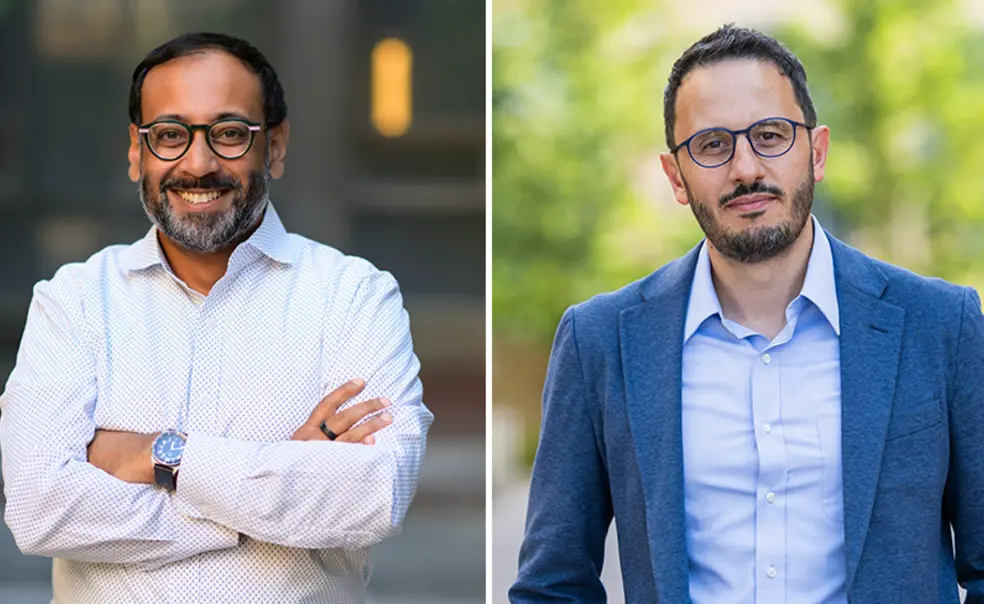Nabarun Dasgupta ’00 and Sébastien Philippe *18 Awarded MacArthur Fellowships
Known informally as ‘Genius Grants’, award recognizes ‘creative individuals with a track record of excellence,’ according to the foundation.
Nabarun Dasgupta ’00 and Sébastien Philippe *18 are among the recipients of the 2025 MacArthur Fellowship. They join 20 other scientists, artists, and scholars across the U.S. chosen for their “exceptional originality in and dedication to their creative pursuits,” according to the MacArthur Foundation website. Fellows will each receive a no-strings-attached $800,000 stipend over five years.
Dasgupta, an applied epidemiologist at the University of North Carolina at Chapel Hill who earned his Princeton degree in molecular biology, was cited by the foundation for his work which “combines scientific studies with community engagement to improve the wellbeing and safety of people who use drugs and people living with debilitating pain.”
Dasgupta oversees the UNC Street Drug Analysis Lab. The lab tests street drugs anonymously mailed in by drug users, medical facilities, and harm reduction community groups, and posts the results online to inform users what samples contain. The lab has tested more than 15,000 samples including drugs from 261 counties in 43 states.
“We give people information about what’s in street drugs so they can make better decisions about what they put in their body,” Dasgupta told PAW in a 2023 interview.
An advocate of reducing death and other harms from drug use, Dasgupta also co-founded Project Lazarus and Remedy Alliance/For The People to enable affordable access to naloxone, the lifesaving medication used for opioid overdoses.
“I feel like I’m in exactly the right place, doing exactly what I was meant to be doing — and that’s not a feeling that we get most times in our careers,” Dasgupta said in a Princeton press release.
Philippe, an assistant professor in the Department of Nuclear Engineering and Engineering Physics at the University of Wisconsin-Madison, was recognized for “exposing past harms and potential future risks from building, testing, and storing launch-ready nuclear weapons,” according to the foundation’s citation.
A nuclear security specialist who earned his Ph.D. from Princeton in mechanical and aerospace engineering, Philippe conducted the first independent assessment of France’s nuclear weapons testing between 1966 and 1996 to document the resulting radiation. His research found that 10 times more people were exposed to significant radiation than the government reported — publishing the book Toxique and the website The Moruroa Files in collaboration with investigative journalists. This work and later research examining radiation in New Mexico and Nevada was used by victims to get reparations and led to new legislation. In another project, Philippe and collaborators created a data visualization, short film, podcast, and other materials on The Missiles on Our Land website to illustrate the extensive radiation exposure that would result from attacks on U.S. missile sites.
After earning his Ph.D., Philippe worked as a research scholar for Princeton’s Program on Science and Global Security (GSG) before joining the University of Wisconsin-Madison this year. In the University press release, he thanked his Princeton mentors Frank von Hippel, Zia Mian, Alexander Glaser, and Rob Goldston.
“I see my work as an intellectual continuation of the work started by [SGS co-founders] Frank and Hal Feiveson,” he said in the release. “I look forward to carrying this work and carrying that spirit forward.”












No responses yet